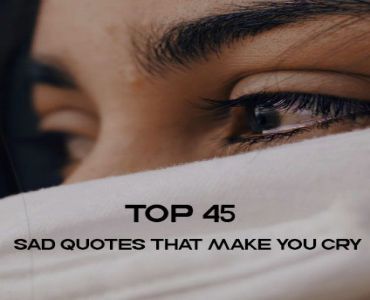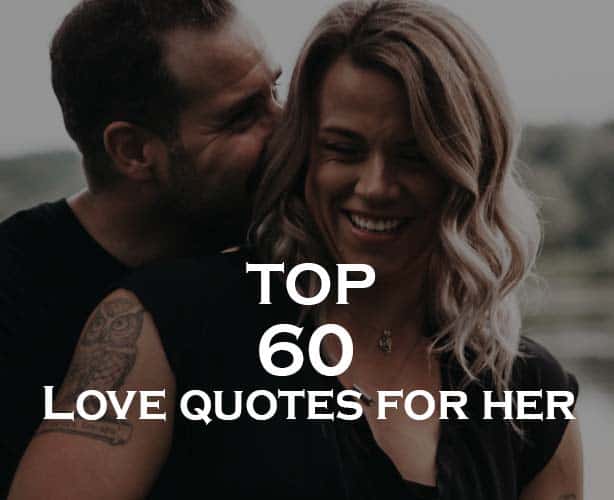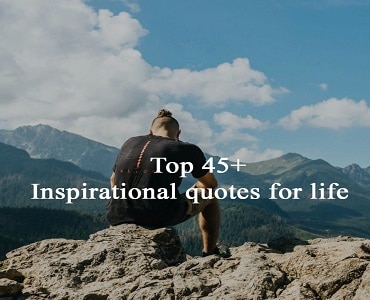Who is Casabdra Brene Brown
Casandra Brené Brown is an American professor, lecturer, author, and podcast host. Brown holds the Huffington Foundation’s Brené Brown Endowed Chair at the University of Houston’s Graduate College of Social Work and is a visiting professor in management at McCombs School of Business at the University of Texas at Austin.
Casandra Brené Brown was born in 1965 in San Antonio, Texas, where her parents, Charles Arthur Brown and Casandra Deanne Rogers, baptized her in the Episcopal church. When her family moved to New Orleans, they brought her up as a Catholic. She left the Catholic Church and returned to the Episcopalian community with her husband, Steve Alley, and their two children two decades later. The family now lives in Houston. She completed a BSW at the University of Texas at Austin in 1995, followed by a MSW in 1996 and a PhD in social work at the University of Houston in 2002.
Brown has spent decades studying the topics of courage, vulnerability, shame, and empathy. She is, to date, the author of the five #1 New York Times bestsellers, namely The Gifts of Imperfection, Daring Greatly, Rising Strong, Braving the Wilderness, and Dare to Lead. Brené hosts the Unlocking Us and Dare to Lead podcasts. Her TED talk, “The Power of Vulnerability”, has been widely viewed.[7][8][9] Her filmed lecture, Brené Brown: The Call to Courage, debuted on Netflix in 2019.
Casandra Brene Brown Quotes
1. “Owning our story can be hard but not nearly as difficult as spending our lives running from it. Embracing our vulnerabilities is risky but not nearly as dangerous as giving up on love and belonging and joy—the experiences that make us the most vulnerable. Only when we are brave enough to explore the darkness will we discover the infinite power of our light.”
2. “You are imperfect, you are wired for struggle, but you are worthy of love and belonging.”
3. “Authenticity is a collection of choices that we have to make every day. It’s about the choice to show up and be real. The choice to be honest. The choice to let our true selves be seen.”
4. “Vulnerability is the birthplace of innovation, creativity and change.”
5. “I define connection as the energy that exists between people when they feel seen, heard, and valued; when they can give and receive without judgment; and when they derive sustenance and strength from the relationship.”
6. “Courage starts with showing up and letting ourselves be seen.”
7. “Because true belonging only happens when we present our authentic, imperfect selves to the world, our sense of belonging can never be greater than our level of self-acceptance.”
8. “Vulnerability sounds like truth and feels like courage. Truth and courage aren’t always comfortable, but they’re never weakness.”
9. “If we can share our story with someone who responds with empathy and understanding, shame can’t survive.”
10. “We cannot selectively numb emotions, when we numb the painful emotions, we also numb the positive emotions.”
11. “Vulnerability is the birthplace of love, belonging, joy, courage, empathy, and creativity. It is the source of hope, empathy, accountability, and authenticity. If we want greater clarity in our purpose or deeper and more meaningful spiritual lives, vulnerability is the path.”
12. “The dark does not destroy the light; it defines it. It’s our fear of the dark that casts our joy into the shadows.”
13. “Understanding the difference between healthy striving and perfectionism is critical to laying down the shield and picking up your life. Research shows that perfectionism hampers success. In fact, it’s often the path to depression, anxiety, addiction, and life paralysis.”
14. “Shame corrodes the very part of us that believes we are capable of change.”
15. “If you trade your authenticity for safety, you may experience the following: anxiety, depression, eating disorders, addiction, rage, blame, resentment, and inexplicable grief.”
16. “Faith is a place of mystery, where we find the courage to believe in what we cannot see and the strength to let go of our fear of uncertainty.”
17. “Imperfections are not inadequacies; they are reminders that we’re all in this together.”
18. “When I look at narcissism through the vulnerability lens, I see the shame-based fear of being ordinary. I see the fear of never feeling extraordinary enough to be noticed, to be lovable, to belong, or to cultivate a sense of purpose.”
19. “What we know matters but who we are matters more.”
20. “Perfectionism is a self destructive and addictive belief system that fuels this primary thought: If I look perfect, and do everything perfectly, I can avoid or minimize the painful feelings of shame, judgment, and blame.”
21. “To love someone fiercely, to believe in something with your whole heart, to celebrate a fleeting moment in time, to fully engage in a life that doesn’t come with guarantees – these are risks that involve vulnerability and often pain. But, I’m learning that recognizing and leaning into the discomfort of vulnerability teaches us how to live with joy, gratitude and grace.”
22. “Nostalgia is also a dangerous form of comparison. Think about how often we compare our lives to a memory that nostalgia has so completely edited that it never really existed.”
23. “I now see how owning our story and loving ourselves through that process is the bravest thing that we will ever do.”
24. “Healthy striving is self-focused: “How can I improve?” Perfectionism is other-focused: “What will they think?”
25. “When we fail to set boundaries and hold people accountable, we feel used and mistreated. This is why we sometimes attack who they are, which is far more hurtful than addressing a behavior or a choice.”
26. “What separates privilege from entitlement is gratitude.”
27. “Staying vulnerable is a risk we have to take if we want to experience connection.”
28. “If we share our shame story with the wrong person, they can easily become one more piece of flying debris in an already dangerous storm.”
29. “Spirituality is recognizing and celebrating that we are all inextricably connected to each other by a power greater than all of us, and that our connection to that power and to one another is grounded in love and compassion. Practicing spirituality brings a sense of perspective, meaning and purpose to our lives.”
30. “Our stories are not meant for everyone. Hearing them is a privilege, and we should always ask ourselves this before we share: “Who has earned the right to hear my story?” If we have one or two people in our lives who can sit with us and hold space for our shame stories, and love us for our strengths and struggles, we are incredibly lucky. If we have a friend, or small group of friends, or family who embraces our imperfections, vulnerabilities, and power, and fills us with a sense of belonging, we are incredibly lucky.”
31. “If you want to make a difference, the next time you see someone being cruel to another human being, take it personally. Take it personally because it is personal!”
32. “Numb the dark and you numb the light.”
33. “The willingness to show up changes us, It makes us a little braver each time.”
34. “Vulnerability sounds like truth and feels like courage.”
35. “Courage is a heart word. The root of the word courage is cor – the Latin word for heart. In one of its earliest forms, the word courage meant “To speak one’s mind by telling all one’s heart.” Over time, this definition has changed, and today, we typically associate courage with heroic and brave deeds. But in my opinion, this definition fails to recognize the inner strength and level of commitment required for us to actually speak honestly and openly about who we are and about our experiences — good and bad. Speaking from our hearts is what I think of as “ordinary courage.”
36. “Connection is why we’re here; it is what gives purpose and meaning to our lives. The power that connection holds in our lives was confirmed when the main concern about connection emerged as the fear of disconnection; the fear that something we have done or failed to do, something about who we are or where we come from, has made us unlovable and unworthy of connection.”
37. “Worthiness doesn’t have prerequisites.”
38. “Stop walking through the world looking for confirmation that you don’t belong. You will always find it because you’ve made that your mission. Stop scouring people’s faces for evidence that you’re not enough. You will always find it because you’ve made that your goal. True belonging and self-worth are not goods; we don’t negotiate their value with the world. The truth about who we are lives in our hearts. Our call to courage is to protect our wild heart against constant evaluation, especially our own. No one belongs here more than you.”
39. “We’re a nation hungry for more joy: Because we’re starving from a lack of gratitude.”
40. “Compassionate people ask for what they need. They say no when they need to, and when they say yes, they mean it. They’re compassionate because their boundaries keep them out of resentment.”
41. “Until we can receive with an open heart, we’re never really giving with an open heart. When we attach judgment to receiving help, we knowingly or unknowingly attach judgment to giving help.”
42. “If you own this story you get to write the ending.”
43. “Even to me the issue of “stay small, sweet, quiet, and modest” sounds like an outdated problem, but the truth is that women still run into those demands whenever we find and use our voices.”
44. “Vulnerability is not winning or losing; it’s having the courage to show up and be seen when we have no control over the outcome. Vulnerability is not weakness; it’s our greatest measure of courage.”
45. “One of the greatest barriers to connection is the cultural importance we place on “going it alone.” Somehow we’ve come to equate success with not needing anyone. Many of us are willing to extend a helping hand, but we’re very reluctant to reach out for help when we need it ourselves. It’s as if we’ve divided the world into “those who offer help” and “those who need help.” The truth is that we are both.”
46. “Shame derives its power from being unspeakable.”
47. “Here’s what I believe: 1. If you are offended or hurt when you hear Hillary Clinton or Maxine Waters called bitch, whore, or the c-word, you should be equally offended and hurt when you hear those same words used to describe Ivanka Trump, Kellyanne Conway, or Theresa May. 2. If you felt belittled when Hillary Clinton called Trump supporters “a basket of deplorables” then you should have felt equally concerned when Eric Trump said “Democrats aren’t even human.” 3. When the president of the United States calls women dogs or talks about grabbing pussy, we should get chills down our spine and resistance flowing through our veins. When people call the president of the United States a pig, we should reject that language regardless of our politics and demand discourse that doesn’t make people subhuman. 4. When we hear people referred to as animals or aliens, we should immediately wonder, “Is this an attempt to reduce someone’s humanity so we can get away with hurting them or denying them basic human rights?” 5. If you’re offended by a meme of Trump Photoshopped to look like Hitler, then you shouldn’t have Obama Photoshopped to look like the Joker on your Facebook feed. There is a line. It’s etched from dignity. And raging, fearful people from the right and left are crossing it at unprecedented rates every single day. We must never tolerate dehumanization—the primary instrument of violence that has been used in every genocide recorded throughout history.”
48. “The universe is not short on wake-up calls. We’re just quick to hit the snooze button.”
49. “Shame works like the zoom lens on a camera. When we are feeling shame, the camera is zoomed in tight and all we see is our flawed selves, alone and struggling.(page 68)”
50. “I only share when I have no unmet needs that I’m trying to fill. I firmly believe that being vulnerable with a larger audience is only a good idea if the healing is tied to the sharing, not to the expectations I might have for the response I get.”
51. “The real questions for parents should be: “Are you engaged? Are you paying attention?” If so, plan to make lots of mistakes and bad decisions. Imperfect parenting moments turn into gifts as our children watch us try to figure out what went wrong and how we can do better next time. The mandate is not to be perfect and raise happy children. Perfection doesn’t exist, and I’ve found what makes children happy doesn’t always prepare them to be courageous, engaged adults.”
52. “You know, and so, I’ve come to this belief that, if you show me a woman who can sit with a man in real vulnerability, in deep fear, and be with him in it, I will show you a woman who, A, has done her work and, B, does not derive her power from that man. And if you show me a man who can sit with a woman in deep struggle and vulnerability and not try to fix it, but just hear her and be with her and hold space for it, I’ll show you a guy who’s done his work and a man who doesn’t derive his power from controlling and fixing everything.”
53. “Just because someone isn’t willing or able to love us, it doesn’t mean that we are unlovable.”
54. “Until we can receive with an open heart, we are never really giving with an open heart.”
55. “True belonging is the spiritual practice of believing in and belonging to yourself so deeply that you can share your most authentic self with the world and find sacredness in both being a part of something and standing alone in the wilderness. True belonging doesn’t require you to change who you are; it requires you to be who you are.”
56. “Midlife: when the Universe grabs your shoulders and tells you “I’m not f-ing around, use the gifts you were given.”
57. “There are too many people today who instead of feeling hurt are acting out their hurt; instead of acknowledging pain, they’re inflicting pain on others. Rather than risking feeling disappointed, they’re choosing to live disappointed. Emotional stoicism is not badassery. Blustery posturing is not badassery. Swagger is not badassery. Perfection is about the furthest thing in the world from badassery.”
58. “Here’s what is truly at the heart of wholeheartedness: Worthy now, not if, not when, we’re worthy of love and belonging now. Right this minute. As is.”
59. “Vulnerability is our most accurate measurement of courage.”
60. “Compassion is not a virtue — it is a commitment. It’s not something we have or don’t have — it’s something we choose to practice.”





